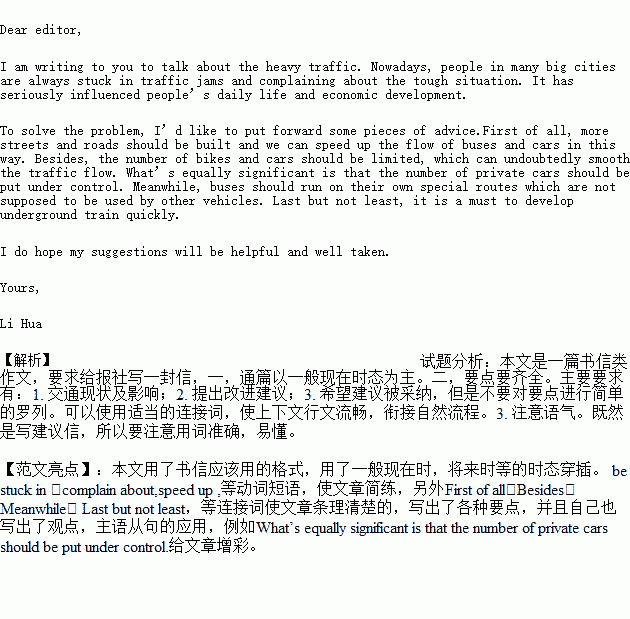题目内容
近年来大城市交通拥堵严重,影响了人们的生活和经济发展,对此人们十分抱怨。假如你是李华,请根据以下要点用英语给报社写封信。
1.交通现状及影响;
2.提出改进建议;
3.希望建议被采纳。
注意:1.词数100左右;
2.可以适当增加细节,以使行文连贯;
3.开头语已为你写好,不计入总词数。
Dear editor,
I am writing to you to talk about the heavy traffic.
____________________________________________________________________________________________
____________________________________________________________________________________________
____________________________________________________________________________________________
____________________________________________________________________________________________
____________________________________________________________________________________________
____________________________________________________________________________________________
____________________________________________________________________________________________
____________________________________________________________________________________________
____________________________________________________________________
Yours
Li Hua
 名校课堂系列答案
名校课堂系列答案

 in their life.
in their life. itional Chinese calendar;糯米——glutinous rice;竹叶或芦苇叶——bamboo or reed leaf;自尽——commit suicide
itional Chinese calendar;糯米——glutinous rice;竹叶或芦苇叶——bamboo or reed leaf;自尽——commit suicide